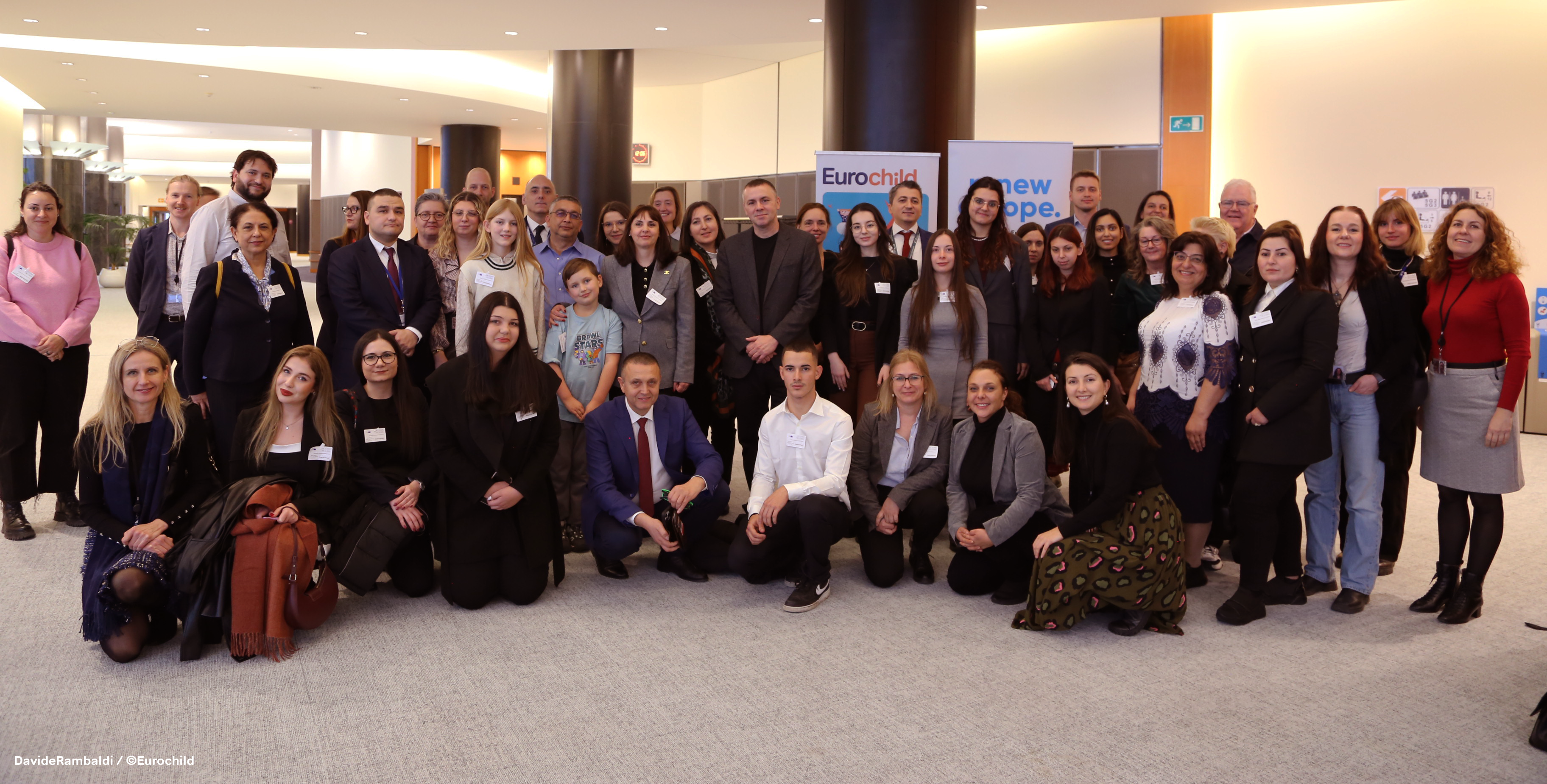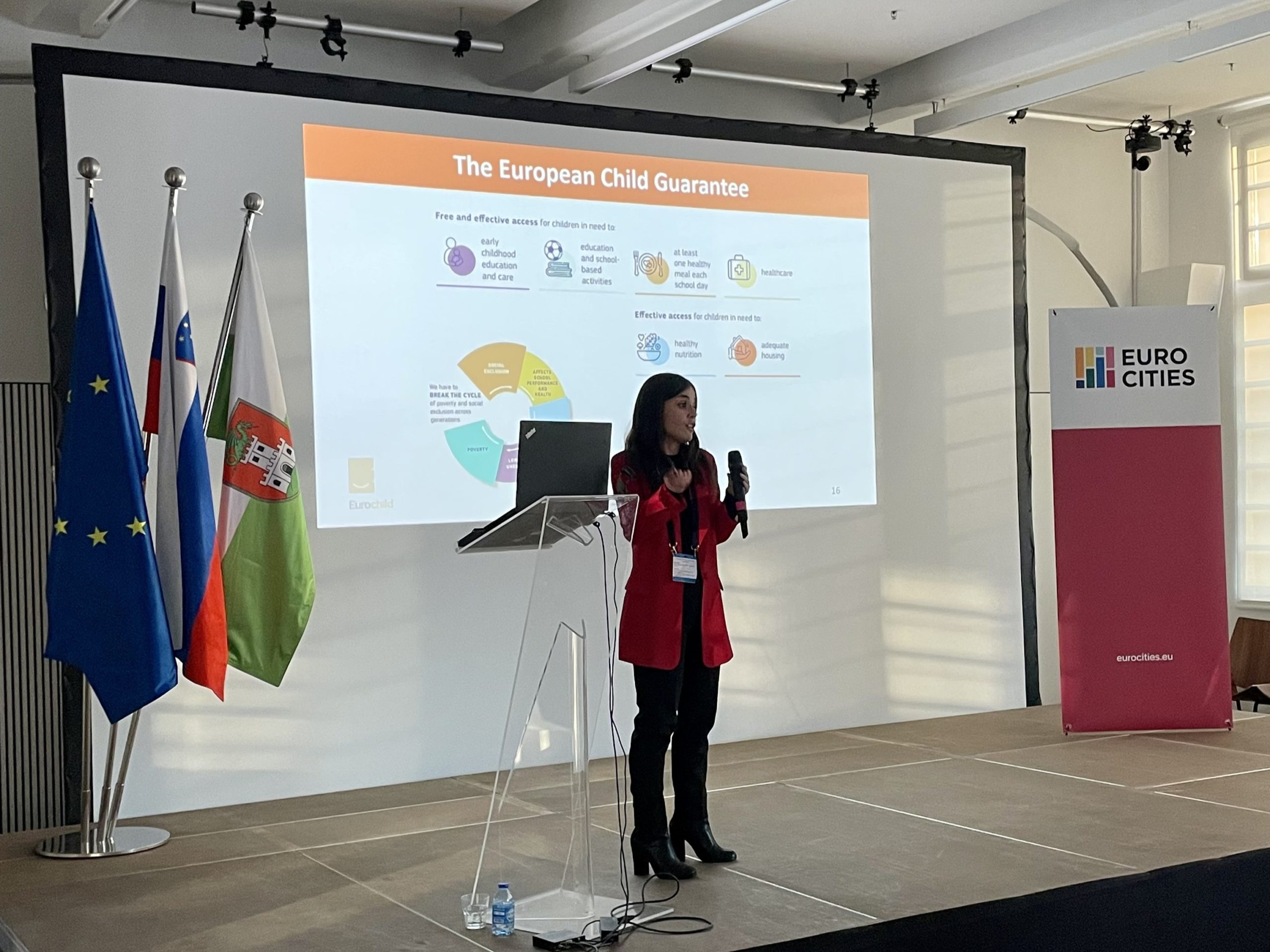Can Europe eradicate child poverty?
Child Poverty in Europe in the 21st Century
Almost 18 million children were at risk of poverty or social exclusion in the EU according to official statistics in 2019. Poverty for children can sometimes be invisible, for example not being able to get new glasses, not being able to participate in leisure activities, or living in cramped conditions.
It is estimated that globally, 150 million additional children will be living in poverty due to the COVID-19 pandemic. The pandemic has undoubtedly disproportionately impacted those already disadvantaged – creating new vulnerabilities due to lack of access to online learning or increased risk of violence in the home, as identified in Eurochild’s ‘Growing Up in Lockdown’ report.
Can Europe eradicate child poverty?
In our view, the Recommendation on Investing in Children adopted by the European Commission in 2013 captured well what needs to happen at a policy level. Then progress stalled. It is only recently that developments at EU level give us hope.
The recently adopted Action Plan on the Pillar sets a specific target, albeit not at ambitious as we expected, to lift at least 5 million children out of poverty by 2030. Thanks in part to the advocacy of Eurochild and our civil society partners, 5% of the European Social Fund Plus (ESF+) is earmarked for tackling child poverty in countries where levels of child poverty are at or above the EU average. Other Member States are also encouraged to use ESF+ funding for this purpose.
In addition, the Recovery and Resilience Facility (RRF) made up of grants and loans will be spent according to RRF plans submitted by Member States. In partnership with Eurochild members we’re trying to make sure that these plans prioritise investment in children, in the education, health, housing or social care sectors.
On 24 March 2021, the European Commission launched an EU Strategy on the Rights of the Child and the European Child Guarantee Recommendation, which set a clear framework for action by Member States and the EU institutions.
- The European Child Guarantee provides guidance and tools for Member States to support children in need - defined as children under the age of 18 who are at risk of poverty or social exclusion, experiencing homelessness, or children in precarious family situations, in alternative care (particularly institutional care), as well as children with disabilities and migrant, minority racial or ethnic backgrounds.
- The EU Strategy on the Rights of the Child reinforces the rights set out in the Charter of Fundamental Rights of the EU and the United Nations Convention on the Rights of the Child. It outlines 6 thematic areas, one specifically focused on child poverty to be delivered through the European Child Guarantee.
If all EU instruments above are harnessed properly, they can stimulate greater political will and concrete actions to tackle child poverty, at all levels of government.
Political will at the national level
Eurochild’s members are working with and for vulnerable children and families throughout Europe on a day-to-day basis. They witness the harmful effects of poverty on children’s lives in the present and on their future prospects. That’s why we’ve been advocating for national governments to prioritise systemic reforms that address the structural inequalities impacting children.
The strong political guidance coupled with targeted EU resources have the potential to trigger and support action by Member States. But ultimately it is about political will. Leaders must recognise that high levels of child poverty are unacceptable in one of the most prosperous regions of the world and that our societies will be more equitable and resilient if we prioritise investment in children.





